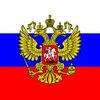| President of Russia Президент России | |
 | |
Incumbent Aleksey Romanov since 6 May 2013 | |
| Style | His Excellency |
|---|---|
| Residence | the Kremlin, Moscow |
| Term length | 7 years |
| Inaugural holder | Boris Romanov (1992-1995) |
| Formation | 1 January 1992 |
The President of the Russian Federation is the head of state, supreme commander-in-chief and holder of the highest office within the Russian Federation. Before the new constitution was adopted in 2009 an individual was limited to 2 consecutive 6-year terms, but this was changed and starting with the president elected in the elections scheduled for 2013, the presidential term is 7 years and no limitations on neither the number of consecutive not total terms.
The current president of Russia is Aleksey Romanov.
History of office[]
From 1931 to 1989 the post was known as the Chairman of the Supreme Soviet of the Russian Soviet Federative Socialist Republic and from 1989 to 1992 as President of the RSFSR. The post is also indirectly linked to the office of the President of the Soviet Union to which it is de facto successor.
Powers and duties[]
The President of the Russian Federation is the head of state, supreme commander-in-chief and holder of the highest office within the Government of Russia. The President alone is in command of the missile arsenal of Russia.
Residences[]
The primary working President's residence is the Senate building in the Moscow Kremlin complex. The entire Kremlin complex is the official residence of the President.
Other official residences include:
- the Winter Palace, St. Petersburg (Romanov-family private property)
- the Timuride Palace, summer residence on the Pacific coast
- Bocharov Ruchey, Sochi
Oath of Office[]
Each person who has been elected to this office takes this oath during their inauguration:
- Russian:
"Клянусь при осуществлении полномочий Президента Российской Федерации уважать и охранять права и свободы человека и гражданина, соблюдать и защищать Конституцию Российской Федерации, защищать суверенитет и независимость, безопасность и целостность государства, верно служить народу."
- English:
"I do solemnly swear, in the performance of my powers as the President of the Russian Federation, to respect and protect the rights and freedoms of man and citizen, to observe and protect the Constitution of the Russian Federation, to protect the sovereignty and independence, security and integrity of the state and to serve the people faithfully."
Insignia[]
The presidential standard is a square version of the Russian flag. Golden fringe is added to the standard. Copies of the standard are used inside his office, at the Kremlin, other state agencies, and while the president is travelling in a vehicle inside Russia. A 2:6 ratio version of the flag is used when the President is at sea. This is the mostly used symbol to denote the presence of the Russian President.
By the military the president is styled "Tоварищ Президент" (Tovarish Prezident), which roughly translates as "Comrade President", a legacy from the Soviet-era when "comrade" was used instead of "Mr." or "Sir".
the Presidential Administration[]
The Russian presidential administration (also known as the Staff of Russia’s Presidential Executive Office, in Russian: Администрация Президента Российской Федерации)) is the executive office of Russia's president. It has a staff of around 1,000 persons.
Current President[]
- Main article: Aleksey Romanov
Succession to the presidency[]
The laws concerning the succession to the president exists to ensure the continued stability of government.
Acting President[]
In case of the President's death, resignation or impeachment, the Chairman of the Government (the Prime Minister) becomes temporary president until new presidential elections, which must take place within 90 days.
The Prime Minister acting as president may not dissolve the State Duma, announce a referendum or propose amendments to the Constitution.
When the Chairman of the Government takes office as Acting President he or she must resign from the post as Chairman of the Government, which means that in the extraordinary circumstances the First Deputy Prime Minster becomes Head of Government, he or she will hold this position until a new (elected) President takes office. The First Deputy Prime Minister will head a temporary government, until a new president has been elected. The new President will then appoint a new Chairman of the Government who will form a new government.
If however the Chairman of the Government cannot take office because of extraordinary circumstances the succession to presidency of the Russian Federation goes as follows:
- Speaker of the Federal Council of the Russian Federation
- Speaker of the State Duma of the Russian Federation
- Ministers of the Government in order of seniority (days served)
- Commander of the Moscow Military District